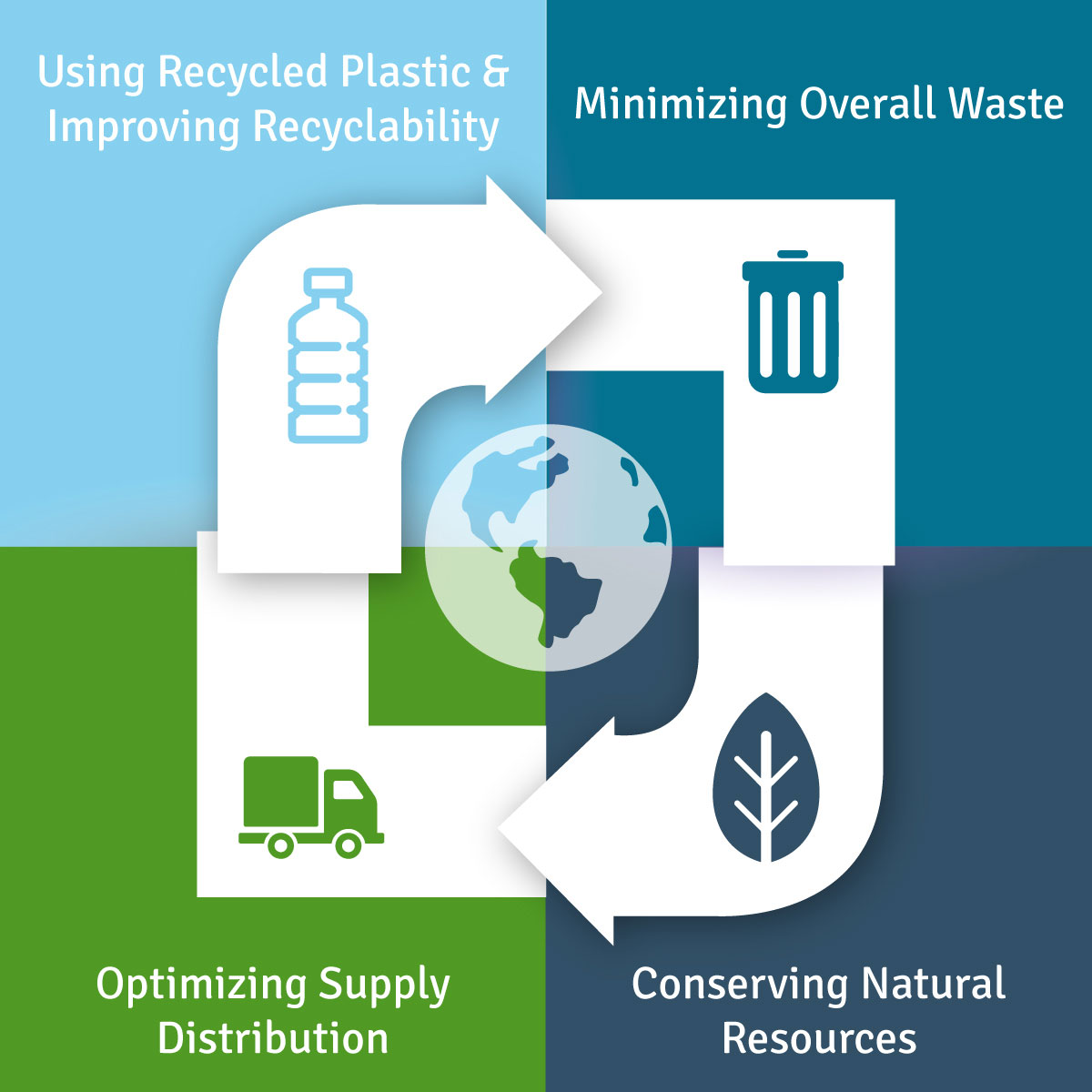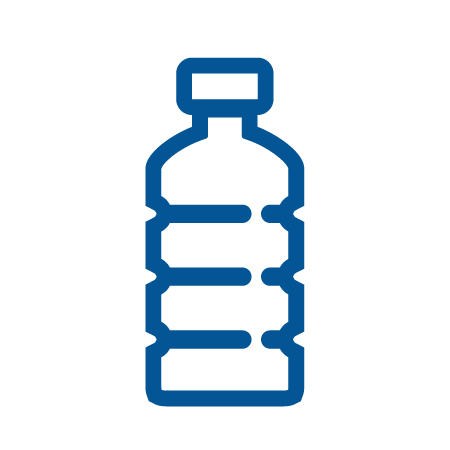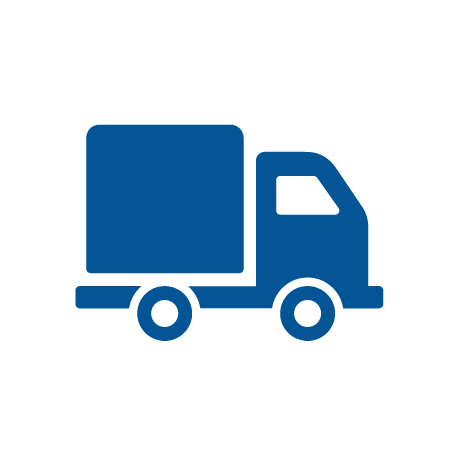
The reality is that thousands of food and beverage products are packaged in non-recyclable or thick, bulky recyclable plastic. At Premium Waters, Inc. (PWI), we attempt to utilize the least amount of plastic possible when delivering safe, convenient, and quality water to your door. Reducing the current impact of plastic on our environment will take a united effort among all the companies who can sustainably manufacture their goods and the consumers who can incorporate consistent recycling practices.
Collaborative Strides Toward Sustainable Bottled Water
We advocate for cross-industry solutions through membership in the Sustainable Packaging Coalition® because we believe there isn’t one definitive source contributing to environmental problems and pollution, and that we can better address these complex problems by working together towards a mutual goal.
In areas with contaminated tap water or after a natural disaster, bottled water is the only reliable source of safe drinking water. In cases where available tap water is unsafe or during the event of an earthquake, flood, or when supplies of drinkable tap water are interrupted or have failed, bottled water can save lives. Thus, producing sustainable bottled water is an ideal solution for people and the planet.
How Premium Waters Embraces Sustainability

For years, Premium Waters, Inc. (PWI) has been actively developing and integrating sustainable business practices, intending to expand upon these initiatives heading into the future. PWI President Greg Nemec noted, “PWI has long been practical in its approaches towards sustainability. We’re committed to making improvements in all that we do for the long term.” Keep reading to learn more about our efforts!
Using Recycled Plastic and Improving Recyclability

Plastic is a resource that can be recycled and repurposed over and over again. Currently, about 98% of our products are 100% recyclable. As a sustainable bottled water initiative, we have begun incorporating recycled plastic in our bottles and intend to have an average recycled content of 20% across all bottles by the end of 2020. With this goal, we would prevent the equivalent of approximately 1.5 billion new bottles from entering the market. We are also working with our label vendor Inland, in partnership with Avery Dennison, to create CleanFlake™ labels for all .7L and 1L bottles. These innovative labels leave behind no adhesive residue on the bottle during the recycling process, which allows for previously unrecyclable bottles to be converted back to usable recycled plastic.
Minimizing Overall Waste
As a lean manufacturing initiative, a number of our plants are minimizing waste to landfill facilities. These plants closely monitor their garbage each month to ensure that the least amount of true waste is going out. The vast majority of materials in those locations are recycled. Our plants also strive to use minimal water by incorporating water treatments to reduce lost water and manage wastewater with the help of upgraded compressed air.
Conserving Natural Resources
 We’re heading towards going completely paperless for our day-to-day operations. This includes developing and using paperless processes and integrating the use of electronic transactions for customers and vendors, as well as paperless expense reports internally. To take it a step further, we’ve already converted one of our plants to generate and use clean, renewable solar energy via solar panels on the roof and have updated lighting fixtures with LED in other plant locations to maximize energy efficiency.
We’re heading towards going completely paperless for our day-to-day operations. This includes developing and using paperless processes and integrating the use of electronic transactions for customers and vendors, as well as paperless expense reports internally. To take it a step further, we’ve already converted one of our plants to generate and use clean, renewable solar energy via solar panels on the roof and have updated lighting fixtures with LED in other plant locations to maximize energy efficiency.
Optimizing Supply Distribution
 In some cases, we’ll transport product directly to stores versus housing inventory in warehouses and transporting it twice. With additional plant locations, we’re closer to customers, which also enables us to travel less. To reduce the amount of fuel used for “empty miles” during large freight transportation, we utilize backhauls whenever possible, so that the truck is always stocked while on the road.
In some cases, we’ll transport product directly to stores versus housing inventory in warehouses and transporting it twice. With additional plant locations, we’re closer to customers, which also enables us to travel less. To reduce the amount of fuel used for “empty miles” during large freight transportation, we utilize backhauls whenever possible, so that the truck is always stocked while on the road.
Back in 2008, we were one of the first bottled water companies to receive the Safe Quality Food (SQF) Code 2000 Certification, which highlights our commitment to producing safe, quality products. We are equally committed to producing sustainable bottled water and developing eco-friendly business practices. Partner with us as we look to be part of the solution and help do good for our planet!
